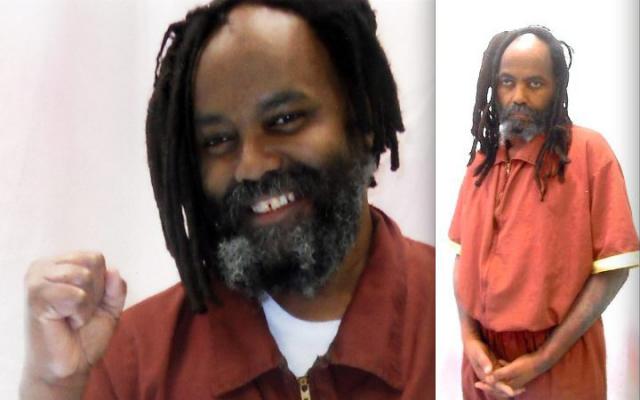4/3 UPDATE: Abu-Jamal has reportedly been moved by the Dept. of Prisons back to SCI-Mahoney’s infirmary, where there is no specialist on diabetes, despite his apparently still being in an acute health crisis. Sigificantly, his supporters note that this shift makes it even more difficult for family members, supporters and reporters to monitor his treatment and condition.
Mumia Abu-Jamal, the radical Philadelphia journalist convicted of killing a white Philadelphia police officer in a trial fraught with prosecutorial misconduct, witness coaching and judicial prejudice back in 1981, spent nearly three decades in solitary confinement in the deliberately designed hell of Pennsylvania’s supermax SCI Green prison before a panel of federal Appeals Court judges eventually ruled that he’d been unconstitutionally sentenced to death.
He of course, received no apology for the state’s making him illegally and improperly spend all those years in solitary waiting to be wrongfully executed. Instead, with that ruling (after a few years of legal stalling by the Philadelphia district attorney’s office), he was simply switched over to a sentence of life without possibility of parole and moved to the SCI-Mahanoy prison in central Pennsylvania.
Now, it appears the state, which lost its chance to execute him, may be trying to kill him another way, as word comes that this world-renowned political prisoner had to be rushed to the hospital this week, unconscious from an undiagnosed case of severe diabetes.
Incredibly, despite his having already spent the past two weeks in the prison infirmary, where he was suffering from a severe case of eczema, painful itching all over his body, lethargy, and frequent urination — all well-known side effects signaling possible diabetes — he was never tested for sugar in his blood or urine (or if was tested, nothing was done about the results). He was only finally diagnosed with the disease after his blood glucose level had risen to 779 — a level far above the normal range of 70-120 — at which point, unconscious, he was rushed to the Schuylkill Health Medical Center’s ICU and put on an insulin drip.
Supporters of Abu-Jamal say that since January he had been ill, complaining of chronic fatigue, painful itching and erupting skin, which only grew worse when the prison doctors prescribed a topical ointment.
For years, as a prisoner, Abu-Jamal has enraged the state’s police union, the Fraternal Order of Police, and law-and-order politicians of both parties, first by successfully battling his death sentence and his conviction, and second by using his journalistic skills to expose the horrors of the state’s, and the nation’s brutal prison system, which he has properly labeled a “prison-industrial complex.” Now this high-profile prisoner is shining a bright spotlight on another ugly aspect of that network of organized horror houses: the medical neglect of the incarcerated.
Whether there was a deliberate attempt to “execute” Abu-Jamal slowly through neglect of his diabetes — a disease that can be brought on by poor diet and/or stress, among other things, and that can kill if left untreated — or whether it was just an example of the standard neglect and incompetence faced by all those locked up by the state, Abu-Jamal’s current crisis, and the way it is being handled by prison authorities, should make any person with a shred of humanity furious.
 SCI-Mahoney Prison, where Mumia is serving a life sentence, pictured here with two members of his legal team, Johanna Fernandez and Heidi Beghosian
SCI-Mahoney Prison, where Mumia is serving a life sentence, pictured here with two members of his legal team, Johanna Fernandez and Heidi Beghosian
 Mumia Abu-Jamal as he looked before and after his untreated diabetic crisis, during which he lost over 50 lbs.
Mumia Abu-Jamal as he looked before and after his untreated diabetic crisis, during which he lost over 50 lbs.







